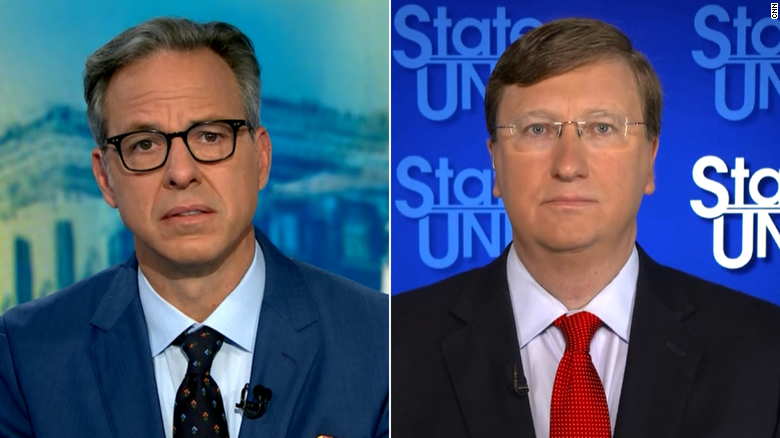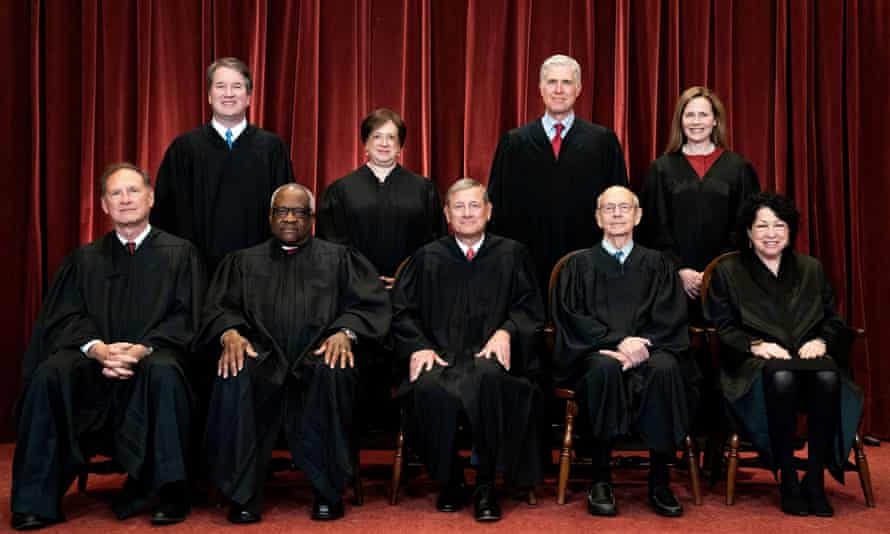Often in American politics, politicians are defined, retained or defeated on the basis of how well they handle a crisis.
By the verdict of history, John Kennedy handled the crisis of Soviet missiles in Cuba in 1962 brilliantly, preventing the very real possibility of an unwinnable nuclear exchange and insuring that the offending missiles were removed.
George W. Bush so bungled the federal response to Hurricane Katrina in 2005, a giant storm that claimed 1,200 lives, that the photo of Bush flying high above the devastation in Air Force One became one of the signature images of his presidency. It didn’t help that Bush praised his incompetent FEMA director – “Brownie, you’re doing a heck of job” – when everyone knew that Michael Brown was doing an awful job. Brown resigned ten days after Bush praised his efforts.

Governors are no less graded on crisis response. So, imagine for a moment what any governor in any state in the nation would do when faced with a crisis, say a catastrophic wildfire situation. Assume the fire was raging out of control, threatening to engulf a city of significant size, and sure to threaten lives. What would any governor do?
The response would be something like this:
Declare an emergency. Mobilize the National Guard and all available state resources. Call on the White House for federal emergency assistance. Synchronize public communication with all levels of government, making sure citizens received regular, reliable, actionable information. A governor might establish a 24-hour command post and issue regular updates on efforts to control the crisis. The governor would be hands on, all day every day.
A governor would empower local officials to make immediate, life-saving decisions. A governor would back those local officials and praise their willingness to make tough decisions to save lives.
A governor would visit frontline first responders on a daily basis, extolling their bravery and sacrifice and highlighting their heroic efforts to contain and end the disaster. And, of course, the TV cameras would be there to document the effort, showing political leadership and showcasing the responders. Would the governor tolerate criticism of first responders? No way.
Would a governor lay down the law about why and how the entire state must respond to the crisis? Of course, including making the moral case that every individual’s actions can contribute to the greater good of the community. A governor might say, “If we don’t behave like we are all in this together our community will suffer huge and unacceptable losses. Every citizen simply must do their duty.”
Would a governor order the use of chemical retardant, or permit a stand of private timber to be bulldozed to construct a fire line to contain the crisis? Without hesitation.
Almost certainly a governor would order an mandatory evacuation of citizens from their homes in order to protect lives, and then enforce an evacuation order, if necessary, with law enforcement intervention. Assume someone in the affected area objected to being ordered out of their home, it would be an affront to their freedom after all. Would a governor concerned about saving lives broker such an argument? Not a chance.
Would a governor worry that a politician who wanted his job was using the disaster to attempt to position to challenge him in the next election? A governor responding this kind of crisis would say: “I’ve had more than enough of my opponent’s nonsense and denial of the extent of this crisis. If you are listening to her, you are simply denying what you can see with your own eyes. Ignore the deniers. Protect yourself, your family, your community.”
And a governor would repeat that message over and over again. And a governor would take the heat from those who criticized and would not try to deflect responsibility for the response to the disaster. “The buck stops here,” a governor might say. “I’m the responsible officer of the government,” a leader might say.
Political leadership at this intense level in a catastrophic wildfire situation would hardly be remarkable. Indeed, it would be standard. Expected. Failure would not be an option.
Yet, in Republican states from Mississippi to Idaho governors have given up – or in most cases never really started – fighting against a natural disaster that has now headed toward claiming 700,000 American lives. Why?
GOP governors have made a simple calculation. They can’t reason with their followers about vaccines and preventive message, so they don’t try. They early on lost – or never tried to claim – the narrative about what they and their constituents faced as we edge toward the second year of COVID. They cut and ran from pushing back on efforts that have largely been successful to delegitimize local health officials. They let the lies and crass political calculations get in the way of saving lives.

Mississippi Governor Tate Reeves recently couldn’t – or wouldn’t – answer the question as to why school children in his state had to be vaccinated for a host of diseases in order to go to school, but he opposes requiring vaccinations against COVID for teachers. His state is in crisis, with more deaths per capita than any place in the world with the exception of Peru.
Idaho’s Governor Brad Little, a re-election looming, is apparently willing to go to court to oppose a federal plan to vaccinate workers at large businesses, even though many businesses support a mandate. He ought to be embracing vaccine mandates, but Little has made his political calculation: he’s given up on efforts to fight pandemic misinformation and quietly decided that the COVID-infected unvaccinated are expendable in his quest for a second term.
Montana Governor Greg Gianforte has muzzled local health officials, refused to impose any sensible controls and now faces a cratering hospital system. The largest hospital in Billings is at 160% of its ICU capacity and is using hallways to care for COVID patients, almost all unvaccinated. “The problem is,” said Brad Von Bergen, the Billing Clinic’s ER manager, “we are running out of hallways.”
In the face of hospital systems in collapse and bodies stacking like cord wood, GOP governors have made the morally reprehensible decision to play politics to try to ensure their own future political viability rather than do what is required to save lives. It is a response of craven indifference, unlike any other in anyone’s lifetime. “It’s like we’re seeing the de-evolution of humanity, right in front of our eyes,” said Chris Roth, the CEO of Idaho’s St. Luke’s Health System told the Idaho Capitol Sun, as he surveyed the wreckage attendant to operating under crisis care standards. Roth is right.
The question for Republican governors is as simple as their callousness is obvious: amid so much death and suffering how do they manage to live with themselves?
—–0—–
Additional Reading:
From my reading list to yours…a few suggestions this week
Anthony Doerr: ‘Rather than write what I know, I write what I want to know’
Happy to say I know the Pulitzer Prize winner Tony Doerr and he’s just as nice a guy as you can imagine. His new book – Cloud Cuckoo Land – is out later this month and The Guardian has a fun Q-A.
“I’d been researching the history of defensive walls to write All the Light We Cannot See, particularly Hitler’s Trump-like dream of a wall from Sweden to Portugal, and everything I read would mention Constantinople, whose walls withstood 23 sieges over 1,100 years. I was like, Constantinople? We didn’t learn about it at school for one second. But rather than write what I know, I write what I want to know, which was how those walls protected Byzantine book culture.”
The Supreme Court has overturned precedent dozens of times in the past 60 years

Does the Supreme Court respect judicial precedent? It depends. The question has come front and center given the recent passage of extremely restrictive abortion legislation in Texas, and the Court’s willingness to let it stand, at least so far.
“Beginning with the Rehnquist court, justices have become more willing to reject precedents they think were badly reasoned, simply wrong, or inconsistent with their own senses of the constitutional framers’ intentions. Justice Clarence Thomas has taken this position on abortion. Justice Amy Coney Barrett during her Senate confirmation hearing argued that Roe is not a so-called superprecedent, a decision so important or foundational that it cannot be overturned.”
A good primer of what will be in the news for a long time to come.
Nick Kristof: Oregon Governor?
I’m generally skeptical of folks who assume going from the private sector to political life is an easy move. It does happen, of course, but rarely, and rarely successfully. It’s looking more and more like New York Times columnist Nick Kristof is going to make the play.
“Beyond speculation about Kristof’s motivation lies a bigger question: Does he even stand a chance? With Governor Kate Brown term-limited, the Democratic primary is wide open, giving an outsider like Kristof an opportunity to enter the political fray. ‘Today, what you have is probably a Democratic Party which is becoming more progressive in recognizable terms nationally—a deeper blue—but the class composition of it is mixed,’ says Joseph Lowndes, a political science professor at the University of Oregon. ‘As the Republican Party has become more conservative, it has lost some of its membership to Democrats more comfortable in center-Democrat kind of politics,’ he said, and one could ‘see Kristof appealing to a moderate or reform sentiment’” now in the party.
We’ll see, as they say, we’ll see:
Can the Martini-on-the-Rocks Make a Comeback?
I confess I didn’t think it had ever gone away…
“Indeed, the Martini/Manhattan on the rocks is a generational thing, a habit picked up by those Americans who came of age in the years following World War II. Adam Platt, restaurant critic at New York magazine, told me that, while his grandfather took his Martinis straight up, with a good amount of vermouth, his father preferred them dry and with ‘plenty of ice.'”
Pull up a chair and pour a cold, cold one.
Many thanks for reading. Be careful out there.
